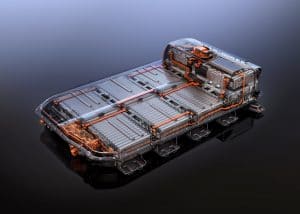Indian Space Research Organisation (ISRO)’s Chairman K Sivan told that ISRO, which has know-how on space-age lithium-ion (li-ion) batteries technology, will make it available to private players in the automotive industry. Sivan made this announcement public after the launch of the GSAT-6A last weekend, reported Yourstory.

A decade ago, the cost of batteries made electric vehicles expensive since they made up 50 percent of the cost of the vehicle. Every kilowatt hour (kWh) of lithium ion battery costs $1,000-$1,500, and so higher the power of the battery, higher the cost of the car. Tesla has 100Kwh batteries. Reports suggest battery costs are falling, and by the end of this year, it is expected to be $245 per kWh.
ISRO Chairman K Sivan said to Yourstory that space-grade li-ion batteries were developed by the Vikram Sarabhai Space Centre and can be used on cars with some modifications. Automotive Research Association of India (ARAI) had already tested ISRO batteries and found them suitable for automotive systems.
“Government-level discussions are going on to find suitable industrial partners and manufacture commercial grade li-ion batteries, which are cost-effective,” he says. Currently, li-ion batteries are being imported from countries like China and Japan.
ISRO uses in-house lithium-ion batteries to power satellites and launch vehicles. When the GSLV-F08 was launched last week, lithium-ion batteries were used to power the new electromechanical actuation system. Analysts from KPMG and PWC say that the future is a combination of solar and lithium ion batteries.
To meet ISRO’s battery requirements, a memorandum of understanding has been signed with Bharat Heavy Electricals Limited (BHEL). “We transferred technology to BHEL to produce space-grade batteries,” says Sivan. A panel headed by Cabinet Secretary P K Sinha had recommended the commercial use of ISRO’s li-ion battery technology under the ‘Make In India’ initiative for electric vehicles.
In October last year, NITI Aayog member V K Saraswat had said India has to set up large lithium-ion battery manufacturing plants to become a global player in the electric vehicles technology market. Several countries across the world are already turning the spotlight on electric vehicles. Norway and Denmark will be fully electric by 2025. Sales in China have grown three-fold last year. China is the global leader with over 24 million sold a year and over 120 million in operation.





























